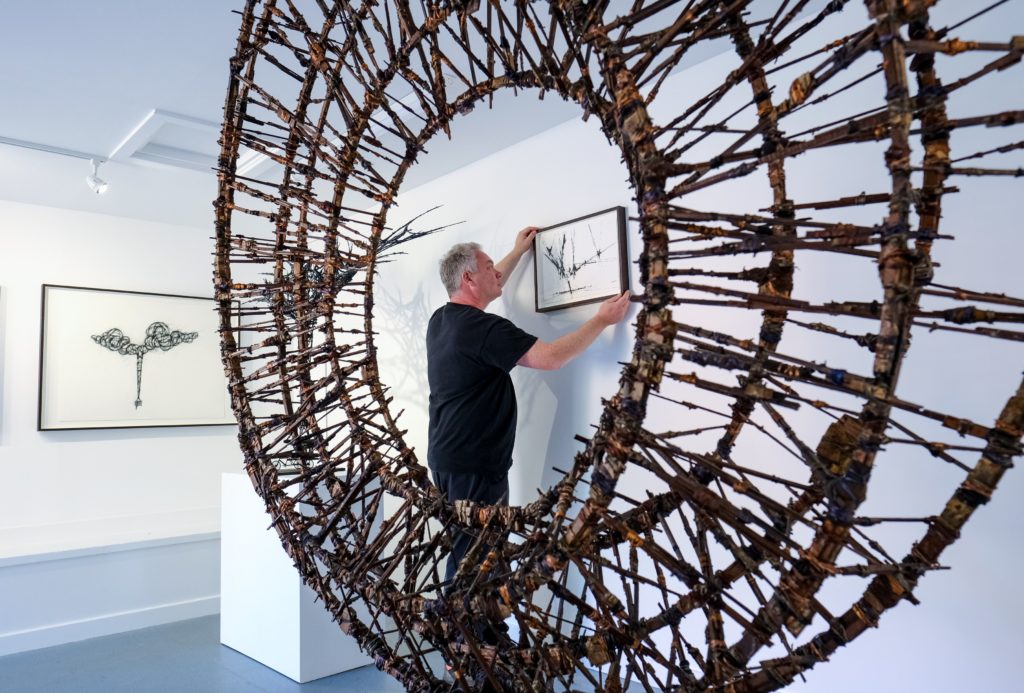
SCULPTURES by Gerry Judah go on show from tomorrow in the Courtyard at Dalby Forest, near Pickering, in his solo show Bengal: The Four Elements.
Known for his monumental Central Feature car sculptures at the annual Goodwood Festival of Speed for the past two decades, he will show pieces inspired by his childhood in India until October 31.
Built over nearly a decade and originally commissioned by Arts Council England, who fund Dalby Forest’s arts programme, Judah’s Bengal body of work comprises five sculptures, shown alongside his framed drawings.
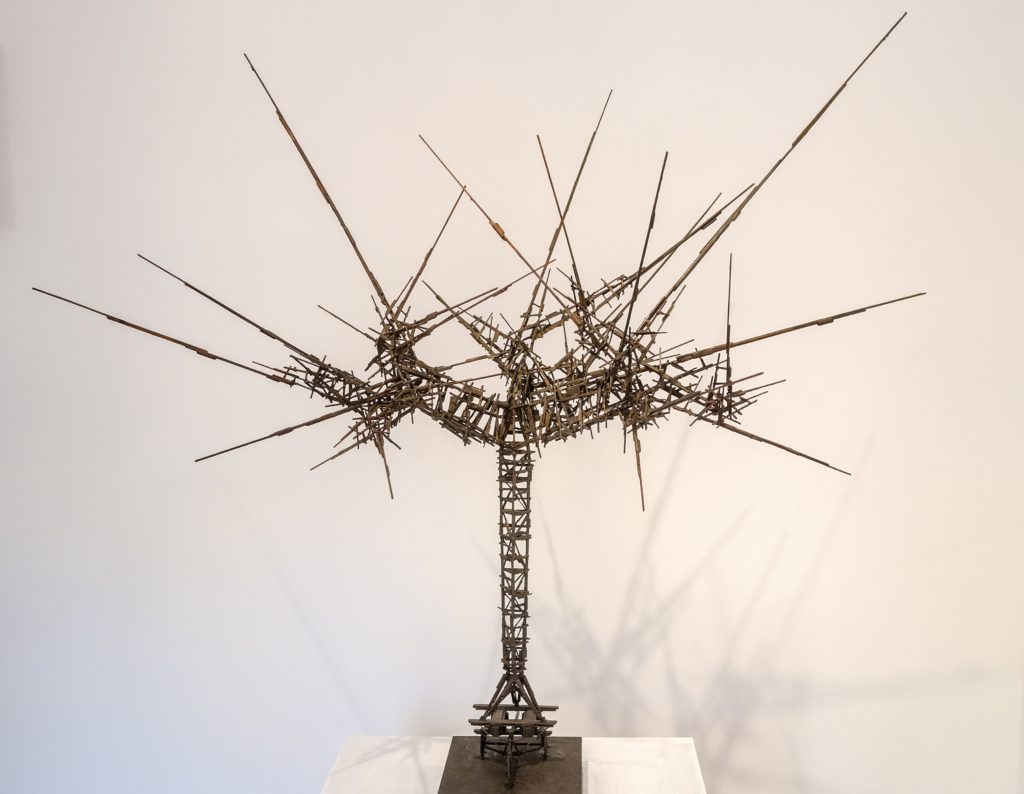
Visually forceful and sensitively crafted, Judah’s works poetically engage with prescient concerns over climate change in India while exploring the artist’s personal history. Drawing on essential natural elements in his detailed sculptures, Judah “constructs the intangible” as clouds shift, waves splash and smoke rises.
Petra Young, Forestry England’s funding and development manager for the Yorkshire Forest District, says: “We’re thrilled to host this exhibition, last seen at Grizedale Forest [in the Lake District]. It brings together a significant body of work that has been developed by Gerry Judah since returning to India in 2013.
“Visitors to the gallery will gain insight into a sculptor’s process, from thinking through ideas and forms through drawing to the production of beautifully crafted sculptures.
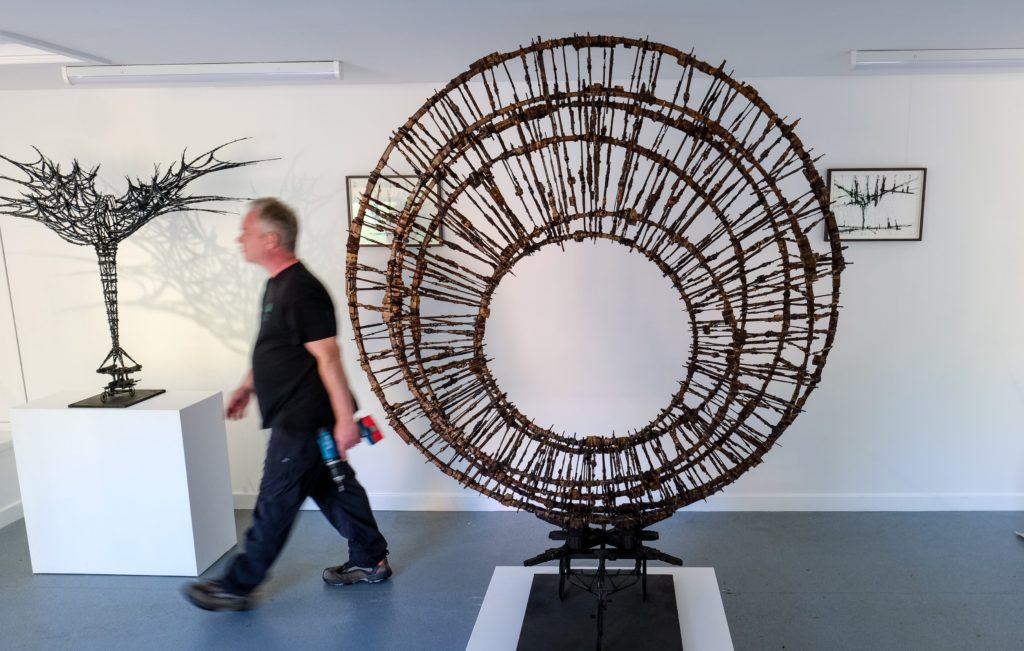
“A common theme is the rickshaws from which each response to the individual elements flow as the artist brings together his childhood memories and thoughts on climate change into dynamic drawings and fascinating forms.”
Work from the Bengal series has been exhibited at the High Commission of India, in London, and Wolverhampton Art Gallery, while other Judah works are on permanent display at the House of Wisdom in Sharjah, United Arab Emirates, and international sculpture parks.
Judah was born in Calcutta – now Kolkata – in 1951 and grew up there before his family moved to London when he was ten. As a boy, the dramatic landscapes of India and the ornate architecture of its temples, mosques and synagogues, with their theatrical rituals, had a profound effect on his developing psyche. These elements would resurface in his own later work.
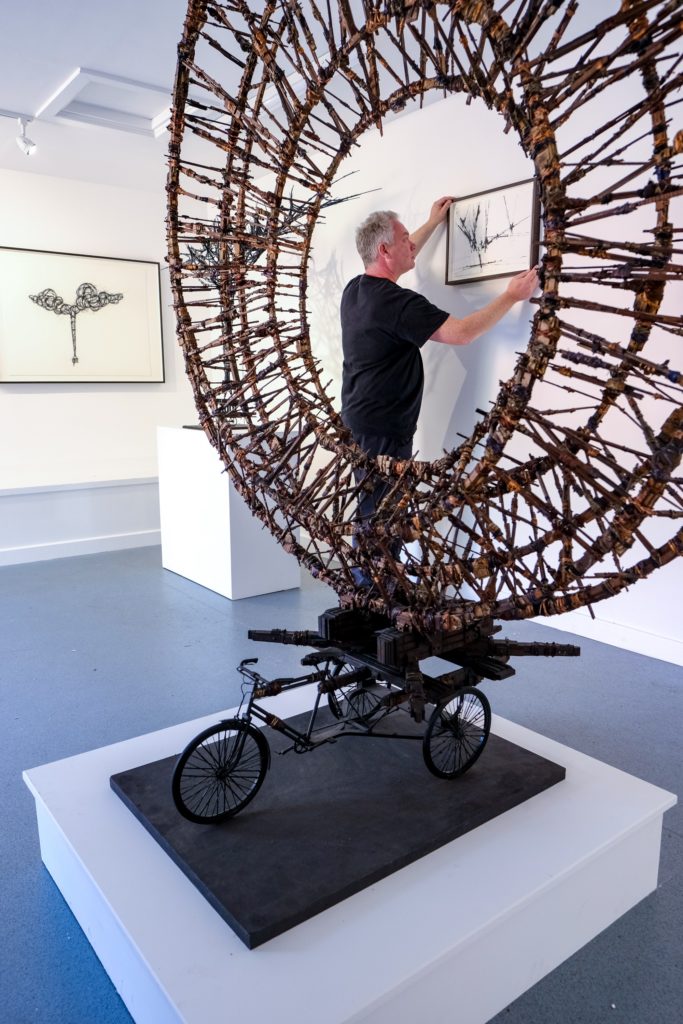
The austerity of post-war London was a shock to the young boy, who chose to spend as much time as possible in his bedroom conjuring up, with pencils and paper, imaginary landscapes, architectural fantasies and futuristic cars, leading him to want to become an artist.
Judah gained a double first-class honours degree in Fine Art at Goldsmiths College, University of London, and studied sculpture as a postgraduate at the Slade School of Fine Art. He was taken with the public nature of this work and decided to find settings for his own art in more public arenas than the rarefied spaces of conventional galleries.
He has created work for the BBC, the British Museum, the Museum of Mankind, the Natural History Museum and the Museum of Tolerance, as well as for such musicians as Paul McCartney, the late Michael Jackson, Robert Plant, Jimmy Page, The Who .
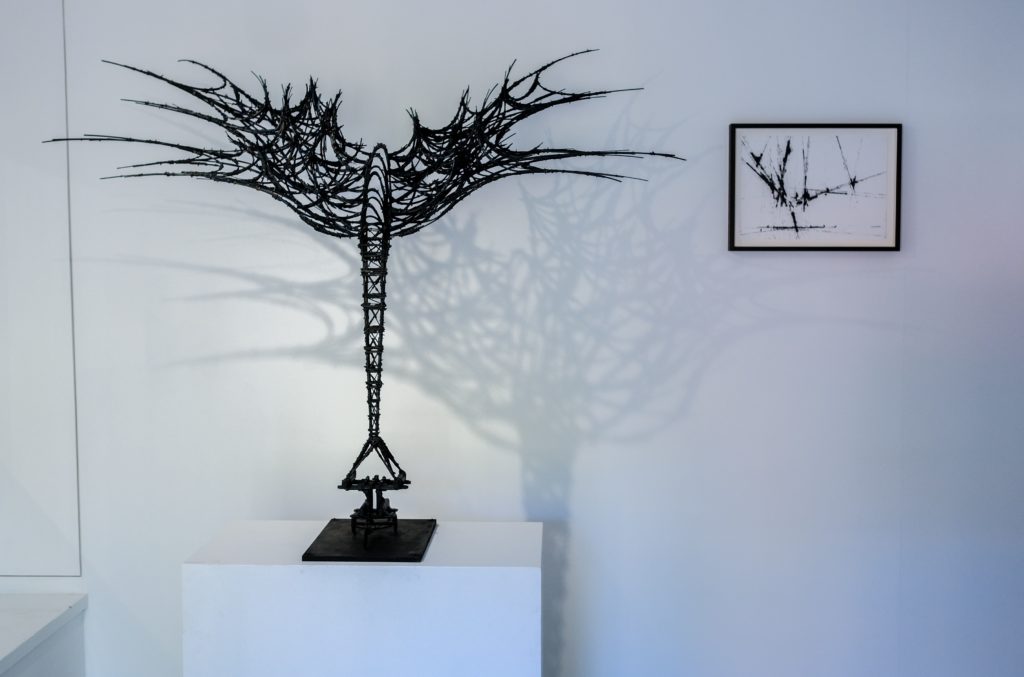
Judah was commissioned by the Imperial War Museum to create a large model of the selection ramp in Auschwitz-Birkenau for the Holocaust Exhibition opened by The Queen.
His work has been exhibited by the Saatchi Gallery, London; the Yorkshire Sculpture Park, near Wakefield; Camden Arts Centre; the David Roberts Foundation; the Royal Institute of British Architects; Cass Sculpture Foundation, the Museum of Old and New Art, Hobart, Tasmania, and the Louis Blouin Foundation. In 2014, his two monumental sculptures commemorating the First World War were placed on permanent display in St Paul’s Cathedral, London.
Gerry Judah’s Bengal: The Four Elements exhibition at Dalby Forest is free to enter and is open from Tuesdays to Sundays, 11am to 4pm.
